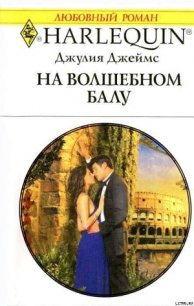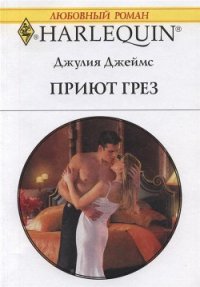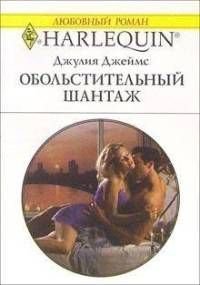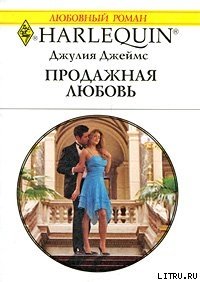Julia Ward Howe - Richards Laura E. (бесплатная регистрация книга TXT) 📗
"December 16. Sarah Clarke[57] and Foley[58] are to dine with me at 5.30. Went out at 10 A.M. to take Foley to see [William] Hunt, whom we found in his studio in a queer knitted coat. He showed an unfinished head of General Grant, in which it struck me that the eyes looked like the two scales of a balance in which men and events could be weighed."
The Journal for 1866 opens with a Latin aspiration: "Quod bonus, felix, faustusque sit hic annus mihi et meis amicis dilectis et generi humano!"
February finds her in New York, going to a "family party at Aunt Maria's.[59] Uncle John came. He was the eldest, my Harry the youngest member. I made a charade, Shoddy, in which Mary [Ward] and Flossy took part. Mary did very well. Flossy always does well. I enjoyed this family gathering more than anything since leaving home. It is so rare a pleasure for me. Family occasions are useful in bringing people together on the disinterested ground of natural affection, without any purpose of show or self-advancement. Relations should meet on more substantial ground than that of fashion and personal ambition. Nature and self-respect here have the predominance. In my youth I had no notion of this, though I always clung to those of my own blood."
From New York she went to Washington, where she gave a series of philosophical readings. Here, while staying at the house of Mrs. Eames, she had a violent attack of malarial fever, but struggled up again with her usual buoyancy.
"February 19. Weather rainy, so stayed at home; eyes weak, so could do little but lie in my easy-chair, avoid cold, and hang on to conversation. To-day the President[60] vetoed the bill for the Freedmen's Bureau. The reading of the veto was received by the Senate with intense, though suppressed, excitement. Governor Andrew read it to us. It was specious, and ingeniously overstated the scope and powers demanded for the Bureau, in order to make its withholdment appear a liberal and democratic measure. Montgomery Blair is supposed to have written this veto."
At her first reading, she had "an excellent audience. The rooms were well filled and there were many men of note there.... Governor Andrew brought me in. Sam Hooper was there. I read 'The Fact Accomplished.' They received it very well. I was well pleased with my reception."
The next day she was so weary that she fell asleep while the Marquis de Chambrun was talking to her.
"February 23. To-day we learned the particulars of President Johnson's disgraceful speech, which awakens but one roar of indignation. To the Senate at 11.30. When the business hour is over, Fessenden moves the consideration of the House Resolution proposing the delay in the admission of members for the Southern States until the whole South shall be in a state for readmission. Sherman, of Ohio, moves the postponement of the question, alleging the present excitement as a reason for this. (He probably does this in the Copperhead interest.) At this Fessenden shows his teeth and shakes the Ohio puppy pretty well. Howe of Wisconsin also speaks for the immediate discussion of the question. Doolittle, of ——, speaking against it, Trumbull calls him to order. Reverdy Johnson pitches in a little. The Ayes and Noes are called for and the immediate consideration receives a good majority. Fessenden now makes his speech, reads the passage from the President's speech, calling the committee of fifteen a directory,—comments fully on the powers of Congress, the injustice of the President and his defiant attitude.... He has force as debater, but no grasp of thought.... In the evening I read the first half of 'Limitations' to a very small circle. A Republican caucus took all the members of Congress. Garrison also lectured. I was sorry, but did my best and said, 'God's will be done.' But I ought to have worked harder to get an audience."
"February 25.... Rode with Lieber[61] as far as Baltimore. He heard Hegel in his youth and thinks him, as I do, decidedly inferior to Kant, morally as well as philosophically....
"The laws and duties of society rest upon a supposed compact, but this compact cannot deprive any set of men of rights and limit them to duties, for if you refuse them all rights, you deprive them even of the power to become a party to this compact, which rests upon their right to do so. Our slaves had no rights. Women have few."
After leaving Washington, she spent several days with her sister Annie in Bordentown, and there and in New York gave readings which seem to have been much more successful than those in Washington. After the New York reading she is "glad and thankful."
The visits in Bordentown were always a delight and refreshment to her. She and her "little Hitter" frolicked, once more two girls together: e.g., the following incident:—
The Reverend —— Bishop was the Mailliards' pastor; a kindly gentleman, who could frolic as well as another. One day our Aunt Annie, wishing to ask him to dine, sat down at her desk and wrote:—
"My dear Mr. Bishop,
To-day we shall dish up
At one and a half
The hind leg of a calf—"
At this point she was called away on household business. Our mother sat down and wrote:—
"Now B., if he's civil,
May join in our revel;
But if he is not,
He may go to the devil!"
During the days that followed, Kant and charades divided her time pretty evenly.
"Kant's 'Anthropologia' is rather trifling, after his great works. I read it to find out what Anthropology is."
* * * * * *
"Good is a direction; virtue is a habit."
* * * * * *
"Wearied by endless running about to find help for my charade, —— having disappointed me. Determine to undertake nothing more of the kind."
* * * * * *
The charade (Belabor), which came off the following evening, was marked by a comic "To be or not to be," composed and recited by her in a "Hamlet costume, consisting of a narrow, rather short black skirt, a long black cloak and a black velvet toque, splendid lace ruff, amethyst necklace. It was very effective, and the verses gave reasonable pleasure."
"March 15.... Went to the Masonic Banquet, which was preceded by a long ceremony, the consecration of three new banners. The forms were curious, the music good, the occasion unique. The association appeared to me a pale ghost of knighthood, and the solemnities a compromise between high mass and dress parade. The institution now means nothing more than a military and religious toy."
In this year she met with a serious loss in the death of her uncle, John Ward. He had been a second father to her and her sisters; his kindly welcome always made No. 8 Bond Street a family home.
"April 4. The contents of uncle's will are known to-day. He had made a new one, changing the disposition of his property made in a previous will which would have made my sisters and me much richer. This one gives equally to my cousins, Uncle William's four sons, and to us; largely to Uncle Richard, and most kindly to Brother Sam and Wardie. We know not why this change was made, but once made, it must be acquiesced in, like other events past remedy. My cousins are wealthy already—this makes little difference to them, but much to us. God's will be done, however. I must remember my own doctrine, and build upon 'The Fact Accomplished.'"




